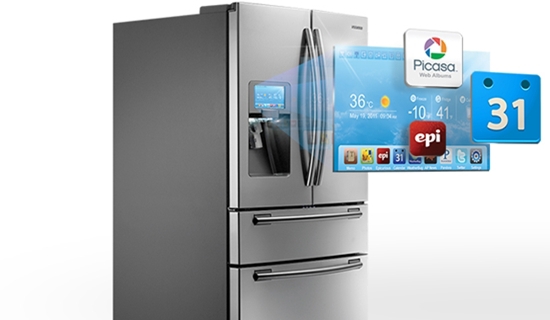Samsung will develop Tizen as a platform for smart home and is preparing a new flagship

In a strange way, Habr was passing the news that Samsung decided to dilute the slender rows of androids with smartphones on its own Tizen OS. Perhaps it just seemed not very interesting - who needs another mobile OS? - but behind it lies something more than ordinary news from the world of smartphones.
For a start - help from Wikipedia:
Tizen (pronounced "taizen") is an open source Linux-based operating system designed for a wide range of devices, including smartphones, Internet tablets, computers, car infotainment systems, smart TVs and digital cameras developed and operated by such corporations. like Intel and Samsung, members of the Technical Steering Group (TSG), and supported by the Linux Foundation and Tizen Association.
And actually an excerpt from the news :
')
Mr. Hong noted that Samsung is currently investing more and more in creating its own ecosystem for smartphones and other products of the company, including tablets, televisions and consumer electronics. "We will work with a variety of manufacturers, as well as suppliers of solutions and components to expand our presence in the market of" smart home "," - he added.
Thus, Samsung is not going to step on the rake of "Nokia", which at one time abandoned its OS, and is now
This step was not only predictable, but we also expect - about a year ago I published the post “ We are waiting for Android for consumer electronics, ” inspired by Samsung’s experiments with a fridge on Android:

The decision to connect home appliances does not produce entities like special home servers, but using the computer center and the control panel already on hand in one person as a smartphone or tablet seemed so obvious that the question was only why so long?
Samsung said it would release mobile solutions and other Tizen-based electronics as soon as possible. However, the company reportedly postponed the launch due to poor market conditions .
Presumably, the company did not feel confident enough to plot a coup that is more suitable for Apple, Google or Microsoft level ambitions. And watching the development of their hardware - I mean Galaxy tablets and smartphones - makes us doubt that they can create an OS in the foreseeable future that will actually press Android or iOS in the mobile market.
But for the smart home market this is truly a breakthrough event. The entry of a giant like Samsung to it means creating it anew. Until now, this topic has remained a toy for the rich or geeks - and it will become the everyday reality of millions of users who don’t have to acquire anything that they don’t use before to start managing consumer electronics at a new level.
True, all that they have to buy, will have to wear the label Samsung. And this may be a definite problem for the future conquest of the world. It would be interesting to know why, after all, Tizen - because of the more suitable capabilities of the platform or “Samsung”, just got tired of feeding someone else's child?
But their actions can encourage Apple and Google to create their own alliances with consumer electronics manufacturers - and then the coup really is not far off.
PS On the post's main picture, the Samsung ZEQ 9000 Tizen smartphone, which leaked in January, is missing. According to the source, it will have a 4.8-inch display with a resolution of 1280x720 pixels and a Qualcomm Snapdragon 800 quad-core processor. , which Samsung promises to show this quarter. Behind him, the Koreans promise to show the average price model.
Source: https://habr.com/ru/post/220937/
All Articles